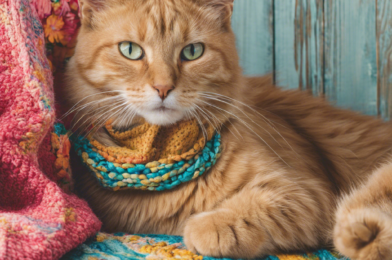As our feline friends age, their health and nutritional needs change, and dental issues can become a common problem. Taking care of your senior cat’s teeth and ensuring they receive the proper nutrition is crucial for their overall health and well-being. Here’s what you need to know about understanding and meeting the nutritional needs of your older cat with dental issues.
Firstly, it’s important to recognize the signs of dental problems in cats. Cats are notoriously adept at hiding pain, so you might not realize there’s an issue until it becomes severe. Common indicators of dental discomfort include bad breath, reduced appetite, drooling, pawing at the mouth, weight loss, and swollen or bleeding gums. If you notice any of these signs, a trip to the veterinarian is warranted. They can examine your cat’s teeth and gums and provide a professional cleaning if needed.
Once dental issues have been identified and treated, you’ll need to focus on providing your senior cat with the right nutrition to support their dental health and overall well-being. Soft or wet food is often recommended for cats with dental problems, as it’s easier for them to eat and can help reduce discomfort. Canned cat food, either pate or chopped varieties, is a good option, as are specifically formulated senior soft dry foods that are smaller in size and easier to chew.
In addition to soft food, you might want to consider adding nutritional supplements to your cat’s diet. Omega-3 fatty acids can help reduce inflammation and support joint health, which is especially beneficial for older cats. Probiotics can also be beneficial, as they promote a healthy gut and improve overall immunity. Always consult with your veterinarian before starting any new supplements to ensure they are safe and appropriate for your cat’s individual needs.
Providing a variety of food textures can also be beneficial for senior cats with dental issues. This can include a mix of soft and semi-moist foods, as well as the addition of low-sodium meat broths or gravy to add moisture and encourage hydration. Offering multiple sources of hydration is essential for older cats, as they are more prone to dehydration, which can exacerbate other health issues.
Another important consideration is portion size and feeding frequency. Senior cats often have lower energy requirements and may need fewer calories to maintain a healthy weight. However, dental issues can also impact their ability to eat larger meals, so splitting their daily intake into smaller, more frequent meals might be necessary. This can also help keep their blood sugar levels stable and ensure they’re getting all the necessary nutrients.
It’s also worth investing in specific cat food bowls designed for cats with whisker sensitivity, as these can make mealtimes more comfortable and encourage your cat to eat. Raised feeders can also help improve comfort and digestion, especially if your cat suffers from arthritis or joint pain.
Lastly, don’t forget to pay attention to your cat’s water intake. Dental issues can make drinking water painful, so it’s important to provide fresh, clean water at all times and ensure your cat has easy access to their water bowl. Consider using a cat fountain, as the flowing water may encourage your cat to drink more, which can help improve their overall health and kidney function.
By understanding the specific nutritional needs of senior cats with dental issues, you can ensure your beloved feline companion remains happy and healthy during their golden years. Remember to always consult with your veterinarian before making any significant dietary changes and to address any dental issues as soon as possible to prevent further complications. Taking a proactive approach to your senior cat’s dental and nutritional health will help them maintain their quality of life for years to come.

